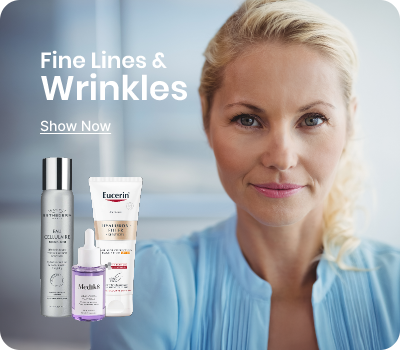
As parents, ensuring the health and well-being of your child is a top priority. Among the many aspects of raising a healthy child, skincare is often overlooked, even though children’s skin is more sensitive, delicate, and prone to irritation than adult skin. The skincare products you choose for your child can have a significant impact on their comfort and skin health, both in the short and long term.
The world of skincare is vast, and as natural and organic products become increasingly popular, parents are turning toward these options to avoid harsh chemicals and harmful additives. However, selecting the right skincare for your child can be overwhelming with so many brands and products making claims about being “natural” or “organic.” In this comprehensive guide, we’ll explore why natural and organic skincare is a great choice for kids, the importance of understanding children’s skin, and how to choose safe, effective products that truly benefit their skin.
The Importance of Choosing the Right Skincare for Kids
Children’s skin is far more sensitive than adults’. It is thinner, less resilient, and more vulnerable to environmental damage and irritants. As a result, the skincare products you select for your child play a crucial role in protecting their skin barrier and overall health.
Unlike adult skincare products that often include harsher ingredients to tackle issues like ageing, children need skincare that is gentle, nourishing, and free from potentially harmful chemicals. Moreover, using natural and organic skincare from an early age can help build healthy skin habits and prevent the development of skin conditions such as eczema, rashes, and dryness.
Why Natural and Organic Ingredients Matter for Children’s Skin
The benefit of using natural and organic products for kids lies in their formulation. Natural and organic skincare products are typically free from synthetic chemicals, artificial fragrances, and preservatives, which are common culprits behind skin irritations, allergic reactions, and long-term skin damage.
Furthermore, natural ingredients often provide additional benefits like soothing inflammation, hydrating the skin, and reinforcing the skin's natural barrier without disrupting the delicate balance of a child’s skin. Organic skincare, particularly, is made from ingredients grown without pesticides, herbicides, or harmful fertilizers, ensuring a purer product that is less likely to cause skin issues. This makes natural and organic skincare an excellent choice for maintaining and protecting a child’s delicate skin.
Understanding Children’s Skin: Why It's Different
How Children’s Skin Differs from Adult Skin
Children's skin differs from adult skin in several ways. First, a child's skin is thinner and more permeable, meaning it absorbs substances more quickly and deeply than adult skin. This increased absorption makes children more vulnerable to harmful ingredients in skincare products. Second, their skin has a less developed acid mantle, the thin protective film on the surface of the skin that prevents bacteria, pollution, and other contaminants from penetrating the skin. Because this protective barrier is still developing in children, it is more easily compromised.
The Impact of Environmental Factors on Delicate Skin
Environmental factors such as UV radiation, pollution, cold weather, and harsh winds can have a more pronounced impact on children's skin. Since their skin is more sensitive, prolonged exposure to the elements can lead to dryness, irritation, and even long-term damage. Additionally, the effects of sun exposure are cumulative, and starting early with proper skincare and sun protection can help reduce the risk of skin issues later in life.
Common Skin Issues in Kids: Dryness, Sensitivity, and Eczema
Many children experience common skin issues like dryness, sensitivity, and eczema. Dry skin can be exacerbated by environmental factors and harsh cleansing products, while sensitivity can lead to redness, itching, and irritation. Eczema, a chronic skin condition, is prevalent in children and often requires special attention. Using the wrong products can worsen these conditions, while natural and organic products with soothing, hydrating ingredients can help alleviate discomfort.
What Does “Natural” and “Organic” Really Mean in Skincare?
Decoding Labels: Understanding Natural vs. Organic
The terms “natural” and “organic” are often used interchangeably, but they are not the same. A product labelled as “natural” typically contains ingredients derived from nature, such as plants, minerals, or animal by-products. However, this doesn’t necessarily mean the product is free from synthetic chemicals. “Organic,” on the other hand, refers to how the ingredients are grown and processed, indicating that they are cultivated without the use of harmful pesticides, synthetic fertilizers, or GMOs. For skincare to be truly organic, the ingredients must meet specific standards set by certifying bodies.
How to Identify Truly Organic Products
One of the key challenges parents face when choosing organic skincare is knowing which products are genuinely organic. To help guide your selection, look for certified organic labels from reputable organisations like Soil Association, USDA Organic or Ecocert. These certifications guarantee that the product contains a certain percentage of organic ingredients and has met strict organic farming and manufacturing standards. Be cautious of products that make vague claims without certification.
Greenwashing: Avoiding Misleading Claims
Greenwashing is a marketing tactic where companies falsely advertise their products as eco-friendly or organic to appeal to environmentally conscious consumers. To avoid falling for greenwashing, read ingredient lists carefully, research the company’s values, and seek third-party certifications. A product labelled as “natural” or “organic” may still contain harmful chemicals if it's not certified, so it’s essential to remain vigilant.
Key Ingredients to Look for in Natural and Organic Skincare for Kids
Gentle, Nourishing Ingredients for Young Skin
When selecting natural and organic skincare products for children, look for ingredients that are gentle and nourishing. Some of the best options include aloe vera, which soothes and moisturises; coconut oil, which is rich in fatty acids that help lock in moisture; and calendula, known for its healing and anti-inflammatory properties. These ingredients are safe for young skin and provide essential nourishment without causing irritation.
Hydration Heroes: Natural Moisturisers That Work
Children’s skin requires hydration, especially after bathing or exposure to environmental elements. Natural moisturisers like shea butter, cocoa butter, and jojoba oil are excellent choices. These ingredients not only provide deep hydration but also strengthen the skin barrier, preventing moisture loss and protecting the skin from dryness and irritation.
Soothing Botanicals: Ingredients to Calm Irritated Skin
If your child experiences skin irritation or conditions like eczema, look for natural ingredients with soothing properties. Chamomile, lavender, and oat extract are known for their calming effects, helping to reduce redness and inflammation. These botanicals are perfect for sensitive skin, providing relief without the harsh side effects of synthetic treatments.
Ingredients to Avoid in Kids' Skincare Products
Harmful Chemicals and Additives to Watch Out For
When choosing skincare products for children, it's crucial to avoid certain harmful chemicals that can cause irritation or long-term damage. Common ingredients to avoid include parabens, which are preservatives linked to hormonal disruptions; sulfates, which can strip the skin of natural oils and cause dryness; and synthetic fragrances, which often contain allergens that can irritate sensitive skin.
Understanding Parabens, Sulfates, and Fragrances
Parabens are commonly used in skincare products to extend shelf life, but their potential links to endocrine disruption make them a concern for children’s health. Sulfates, often found in cleansers and shampoos, create a foamy lather but can be too harsh for delicate skin. Fragrances, especially artificial ones, can lead to allergic reactions, so it’s best to choose fragrance-free or naturally scented products using essential oils.
How Certain Ingredients Can Cause Long-Term Skin Damage
Using products with harmful ingredients can have long-term consequences for children’s skin. Over time, exposure to synthetic chemicals may weaken the skin barrier, making it more susceptible to infections, dryness, and irritation. Additionally, some chemicals can penetrate the skin and accumulate in the body, potentially leading to more serious health concerns later in life.
How to Choose Safe and Effective Products for Your Child
The Role of Certifications: Soil Association, USDA Organic and More
When shopping for skincare products for your child, certifications can help you identify products that are truly safe and natural. Look for labels from trusted certifying organizations like Soil Association, USDA Organic and Ecocert. These certifications ensure that the products meet stringent organic standards and are free from harmful chemicals.
Reading Ingredient Lists: What to Prioritise
One of the best ways to ensure a product is safe for your child is to read the ingredient list carefully. Prioritise products with simple, recognisable ingredients, and avoid those with long lists of unpronounceable chemicals. Look for natural moisturisers like shea butter, oils like coconut or jojoba, and botanical extracts like aloe vera and chamomile.
Patch Testing: Ensuring the Product Is Safe for Your Child
Before introducing a new product to your child’s skincare routine, always perform a patch test. Apply a small amount of the product to a small area of skin and wait 24 hours to check for any reactions. This simple test can help you avoid potential allergic reactions or irritation, ensuring that the product is safe and suitable for your child’s skin.
Skincare Routines for Children: A Step-by-Step Guide
Building a Basic Skincare Routine for Kids
A simple and effective skincare routine for kids should include three steps: cleansing, moisturising, and protecting. Start with a gentle cleanser to remove dirt and impurities, follow with a nourishing moisturiser to keep the skin hydrated, and finish with sunscreen for sun protection. Keeping the routine minimal reduces the risk of irritation and ensures that the child’s skin is not overwhelmed with too many products.
When and How to Use Sunscreen on Children’s Skin
Sunscreen is one of the most important products in a child’s skincare routine. Look for mineral-based sunscreens that use zinc oxide or titanium dioxide, as these are less likely to cause irritation. Apply sunscreen 15-20 minutes before sun exposure and reapply every two hours or after swimming or sweating. Sun protection should be part of the routine year-round, not just in summer.
Best Practices for Bath Time and Aftercare
Bath time can be drying to a child’s skin, especially if hot water or harsh soaps are used. Limit bath time to 10-15 minutes with lukewarm water and opt for gentle, sulfate-free cleansers. After the bath, gently pat the skin dry and apply a moisturiser to lock in hydration while the skin is still slightly damp.
Recommended Natural and Organic Skincare Brands for Kids
Several brands specialise in creating natural and organic skincare products designed specifically for children. These brands prioritise gentle, organic ingredients and have developed products tailored to the needs of sensitive, young skin:
- Weleda is a trusted brand with a long-standing reputation for quality that is often recommended for natural and organic skincare in the UK. Weleda’s Calendula Baby Care range is especially popular, using biodynamically grown calendula to protect and soothe delicate skin. The brand is also known for its sustainability efforts and commitment to using only the purest natural ingredients. Weleda products are free from synthetic preservatives, fragrances, and colourants, ensuring that children’s skin is treated with the utmost care while being protected from harsh chemicals.
- Mustela is a premium skincare brand for kids with sensitive skin. For parents willing to invest in high-quality, premium skincare for their children, it offers luxurious, highly effective products. Mustela uses innovative, natural ingredients that cater to specific skin concerns, such as eczema or extreme dryness, while maintaining the highest standards of purity.
Conclusion
Choosing natural and organic skincare products for your children is a meaningful investment in their skin health and overall well-being. By selecting products with gentle, nourishing ingredients and avoiding harmful chemicals, you can help protect their sensitive skin from irritation and long-term damage. Whether you're building a skincare routine or looking for specialized products for specific skin concerns, being informed about what goes into your child’s skincare can make all the difference. Empower yourself with knowledge and make choices that prioritise the health and comfort of your child's delicate skin for years to come.





